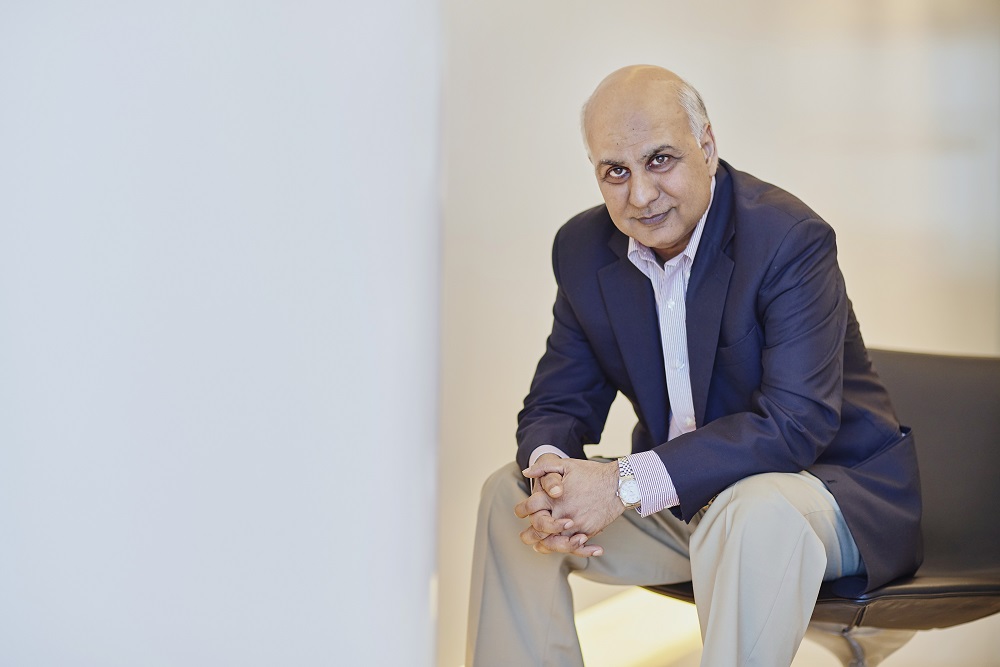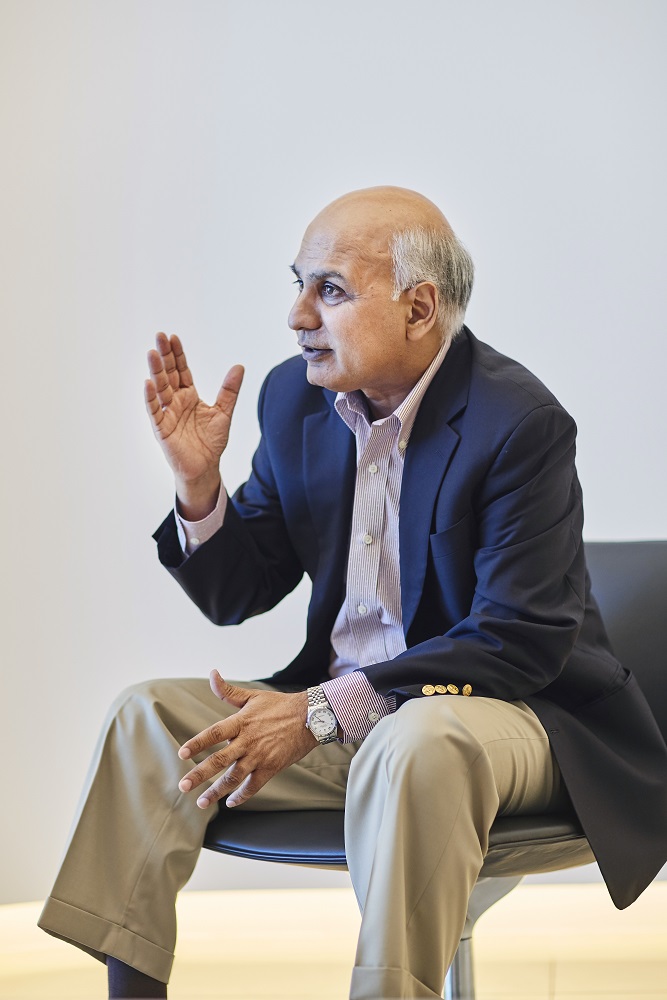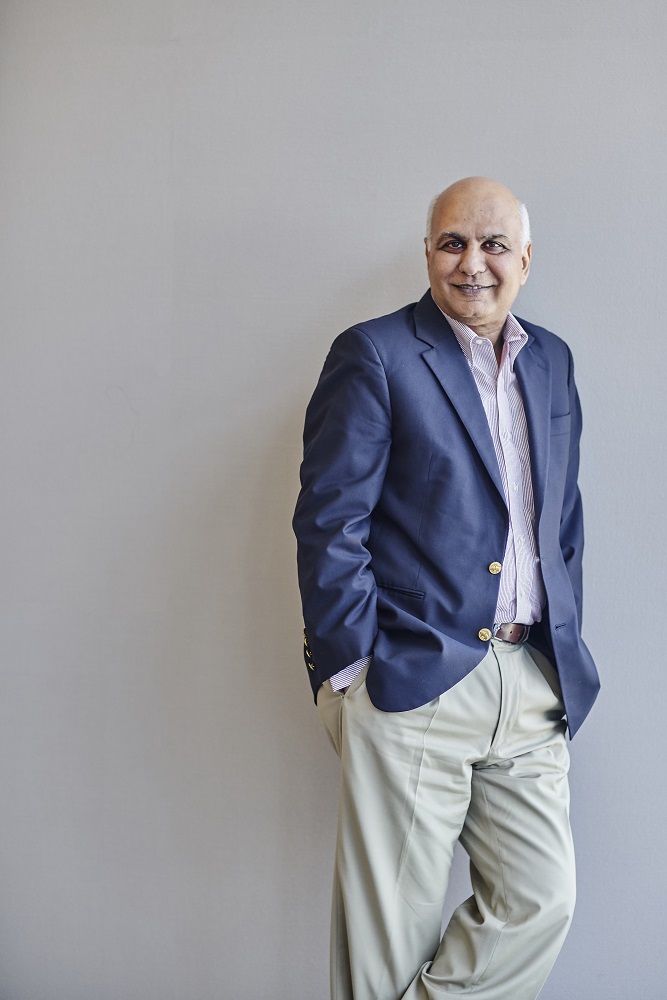Kimberly-Clark’s Asia-Pacific president on employee empowerment
- Yamini Chinnuswamy
- Topics: Asia-Pacific, Features, Home Page - Features, Leaders Talk HR

Achal Agarwal, President of Kimberly-Clark’s Asia-Pacific division, is a veteran of the business world – he has served in his current role for the last decade, and for the 14 years before that, he led PepsiCo’s beverages arm in the greater China region as its Chief Operating Officer.
But he has a very modern – some might say “millennial”, even – view on the way workplaces should function.
“I look for absolute flexibility. When I walk out of the room I might loudly announce, ‘Guys I’m going to watch a cricket match,’ because there’s an exciting match happening. The reason I would announce it is to make it clear to people that I’m not sneaking off,” he says.
This flexible approach is part of his own strategy of empowering and trust his staff to execute their work according to their own needs and preferences.
“I sometimes ask the parents in the office, ‘Your kids come home from school now, don’t you want to receive them? Why are you sitting in the office? You can do email at home.’ Because when that kid comes home from school and sees their parent there, they feel happy, and the parent feels happy,” he says.
Of course, the trade-off for this trust and empowerment is that the work must be done, and done well.
“All I say is, ‘don’t tell me you couldn’t find the time to do something.’ The deal is, you’ve got to do what you’ve got to do. When you do it is up to you.”
Agarwal’s open-mindedness to the realities of working life is no doubt a big part of how Kimberly-Clark has managed to keep up with the changing landscape here in Asia-Pacific.
Despite the immensely disruptive force that e-commerce has proven to be, the company’s brand remains an iconic name in the realm of diapers, tissue paper, and feminine care products.
Many of its big products have been developed right here in Asia-Pacific, where the American consumer goods behemoth employs 8,500 people across 13 major markets.
“We have major research and development nodes in Korea, China, Vietnam, as well as India and Australia. We are doing the majority of innovation in these nodes, and indeed this innovation is being taken across the world,” says Agarwal.
“The most premium diapers in the world are in China, for example.
“Our Korean colleagues have also developed just recently a new product line of sanitary pads called La Nature, which uses materials which are natural, eco-friendly, and free of chemicals.”
The La Nature product is already being sold in South Korea, and is another example of how Kimberly-Clark is seeking to meet the developing needs of consumers through an approach that is itself dynamic.
“It used to be that you’d do a strategy, and it would be set. Maybe every year you’d look at it and modify it here and there. But now it is a constantly evolving thing. It is not static anymore, because there is constant change taking place,” says Agarwal.
What are the key trends you are grappling with at a regional level?
The speed of change is incredible. New business models are appearing. Take South Korea, where 90% of the baby and childcare category – the diaper category, basically – is now online.
In China, more than 50% of our sales are online. Compare that to a couple of years back, where there were no online sales.
So e-commerce has been had a major impact, even for a product developer and manufacturer such as Kimberly-Clark?
Yes, e-commerce has been completely disruptive; in terms of the structure of our customers, their needs, and how they in turn operate with the consumers.
Just in our sales force, a person who used to call on Walmart or Carrefour now has to deal with Amazon or Alibaba or Lazada or one of these e-commerce companies.
It’s a very different way of selling, both to them and then to the end-consumer. Because a consumer going into a store is very different from a consumer who is online – who has the ability to compare hundreds of brands when making their decisions.
So there’s that impact on marketing, as well. In the old days, we would talk about how we needed to impact the consumer in the store. But now it’s about the digital shelf in the digital world, and using digital marketing to impact the consumer.
| E-commerce has been completely disruptive; in terms of the structure of our customers, their needs, and how they in turn operate with the consumers. |
How have you changed your management approach, at a strategic level?
I’d say we were able to transform ourselves very quickly. As a leader I saw this happening – first in Korea. It was an education for me, and what became really clear to me was that I don’t have the solution sitting here.
So I told our different markets that in each of them, we were going to need talent dedicated to the e-commerce and digital space.
A number of country heads didn’t understand why I was talking about it, because e-commerce hadn’t hit their markets yet. I had to emphasise that this was an investment we were making ahead of the curve, because we had to figure it out before we got left behind.
I realised that to drive this change through, we needed the diligence of first setting out to put that resource in place, and also a leap of faith that this was the right thing to do.
Instead of spending time strategising in the boardroom, we ventured out to see what was going on out there. Some of us we went to California a couple of times, to visit companies like Facebook and Google.
How did that apply to your talent strategy?
We have made substantial investments in talent, particularly in the younger demographic which is very much in sync with these new trends, and has the ability to move fast.
It has meant a complete change in how we view our talent: the kind of talent that we hire, and how we keep them around. Because we’re competing now with very exciting companies, so the way we’re going to retain this talent is by keeping them excited, and by making them win.
That seems to be in contrast with the business conversation that tends to be more exasperated with what millennial employees want, and how they operate.
Then I speak for myself in that case. I think the millennials are a misunderstood generation. I see them as searching for different things, compared to what people from my generation looked for.
While we looked for stability, and a specific kind of career trajectory within the one company, millennials have different priorities. They care about the environment, they are interested in enriching, enjoyable roles, they are seeking out flexibility. These are all great things.








